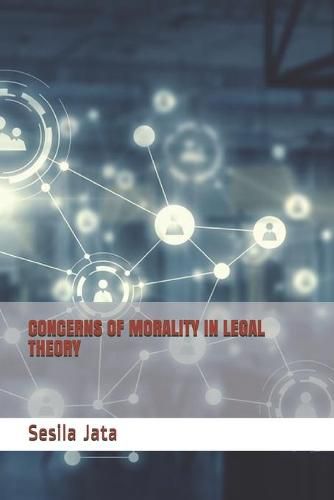Readings Newsletter
Become a Readings Member to make your shopping experience even easier.
Sign in or sign up for free!
You’re not far away from qualifying for FREE standard shipping within Australia
You’ve qualified for FREE standard shipping within Australia
The cart is loading…






''No more literature has been written on the concept of law than in any other field of knowledge.'' These words compose the first paragraph of Hart's most important opera, i.e. "The Concept of Law". In fact many legal theorists have filled the pages of philosophical and jurisprudential literature by trying to answer various questions such as what is law, how is law related to moral value, and what is the connection, if any, between law and morality. During the eighteenth and nineteenth centuries law was presented as a 'science of principles'. Many jurists have tried to explain law as an expression of more abstract principles which may reflect necessary truths about the world and most of all human nature. The disputes between natural law theory and legal positivism are disputes regarding a n evaluative conception of law over a non-evaluative conception; more precisely, it is a dispute regarding the methods for the selection of basic jurisprudential concepts. John Finnis, a Natural law theorist of the twentieth century, explains "how the development of modern jurisprudence suggests that a theorist cannot give a theoretical description and analysis of social facts, unless he also participates in the work of evaluation, of understanding what is really good for human persons, and what is required by practical reasonableness."
$9.00 standard shipping within Australia
FREE standard shipping within Australia for orders over $100.00
Express & International shipping calculated at checkout
''No more literature has been written on the concept of law than in any other field of knowledge.'' These words compose the first paragraph of Hart's most important opera, i.e. "The Concept of Law". In fact many legal theorists have filled the pages of philosophical and jurisprudential literature by trying to answer various questions such as what is law, how is law related to moral value, and what is the connection, if any, between law and morality. During the eighteenth and nineteenth centuries law was presented as a 'science of principles'. Many jurists have tried to explain law as an expression of more abstract principles which may reflect necessary truths about the world and most of all human nature. The disputes between natural law theory and legal positivism are disputes regarding a n evaluative conception of law over a non-evaluative conception; more precisely, it is a dispute regarding the methods for the selection of basic jurisprudential concepts. John Finnis, a Natural law theorist of the twentieth century, explains "how the development of modern jurisprudence suggests that a theorist cannot give a theoretical description and analysis of social facts, unless he also participates in the work of evaluation, of understanding what is really good for human persons, and what is required by practical reasonableness."